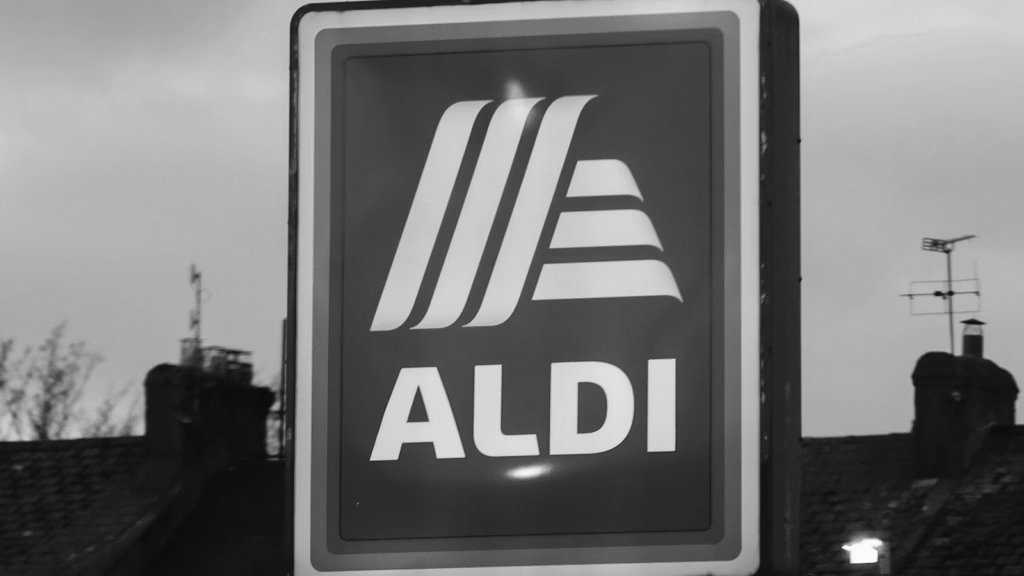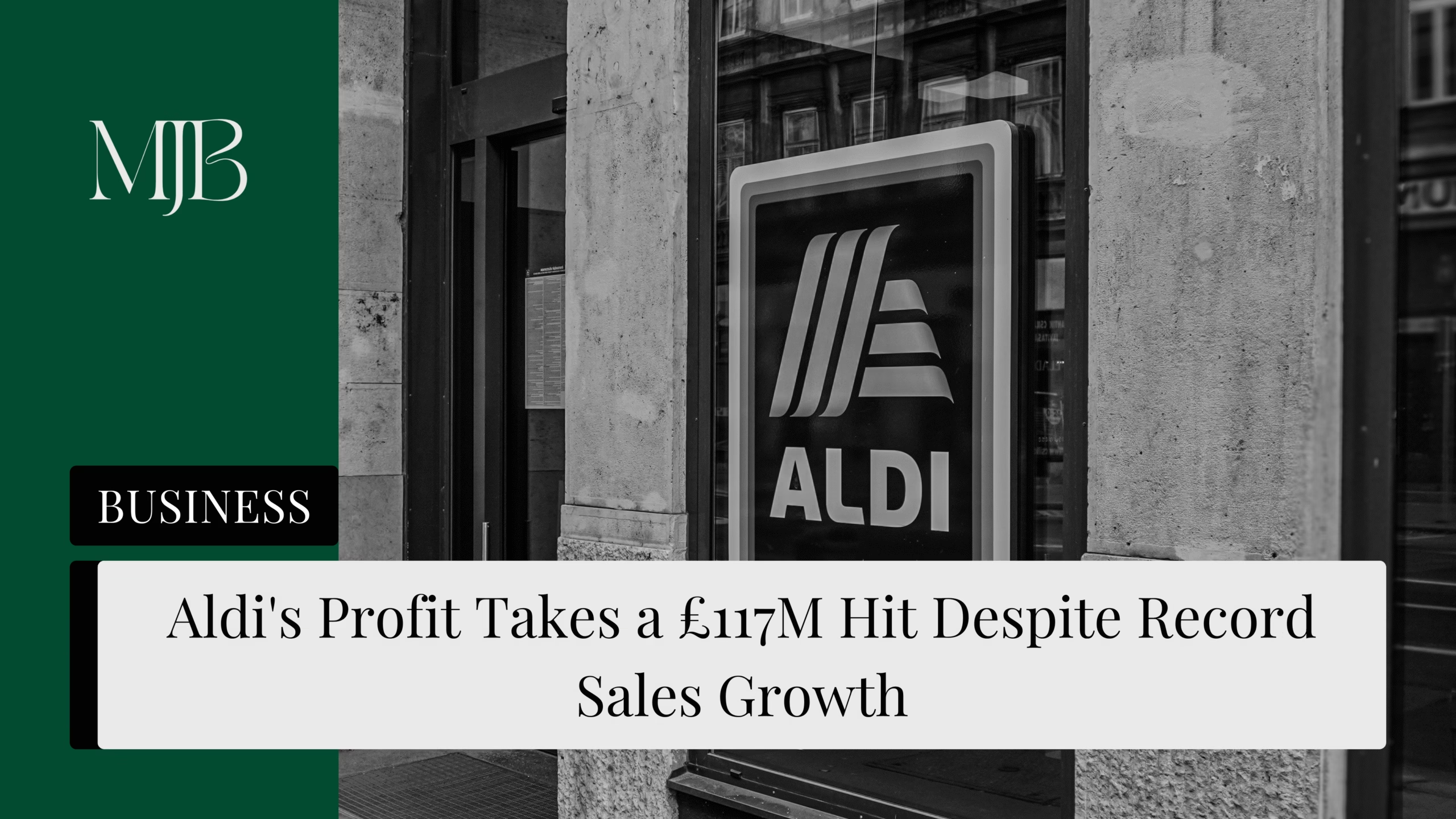Ever wondered what happens when a discount retailer gets too good at discounting? Aldi just found out. The German supermarket giant saw its operating profit nosedive by £117.4M in 2024, dropping from £552.9M to £435.5M – even as sales climbed past the £18B milestone for the first time.
Whilst Aldi’s profit margins got squeezed, their market share hit 10.8%, and they’re planning a record £1.6B investment spree. But CEO Giles Hurley’s got his eye on the Budget, warning that government policy changes could push food prices higher across the board.
Why Aldi’s Profits Got Hammered
Don’t mistake this for a company in trouble. Aldi’s profit drop wasn’t due to declining sales – quite the opposite. The retailer deliberately chose to invest in three key areas that ate into their bottom line:
Price cuts for customers topped the list. Whilst competitors raised prices, Aldi doubled down on their “everyday low prices” promise. It’s a bold move when inflation’s biting everyone’s budget.
Infrastructure investments came second. You can’t expand to 800+ locations without spending serious cash on warehouses, logistics, and store upgrades.
Employee pay increases rounded out the trio. In a tight labour market, keeping staff happy isn’t cheap – but it’s essential for service quality.
The numbers tell the story: turnover grew from £17.9B to £18.1B, and 2025 sales are already up 4.8%. Sometimes you’ve got to spend money to make money.

Budget Concerns Could Drive Food Prices Up
Aldi’s CEO isn’t just watching his own books – he’s eyeing Rachel Reeves’ Budget like a hawk.
Hurley warned the BBC that any policies increasing business operating costs could “ripple through to prices on the shelf edge” across the entire supermarket sector. Translation: when government makes it more expensive to run a business, guess who pays? Your grocery bill.
The National Insurance rise from last year already hit retailers hard. Combined with new packaging requirements, these costs are working their way through the supply chain faster than you can say “weekly shop.”
It’s basic economics – squeeze businesses too hard, and they’ll squeeze customers right back.
Aldi’s Aggressive Expansion Plans
Despite profit pressures, Aldi’s not slowing down. That record £1.6B investment over two years isn’t just talk – it’s a serious statement about their UK ambitions.
The expansion target? Hundreds more communities currently without an Aldi nearby. After 35 years and nearly 800 stores, they reckon there’s still massive untapped demand.
Think about it: 10.8% market share means nearly 9 out of 10 shoppers aren’t regular Aldi customers yet. In a cost-of-living crisis, those are pretty attractive odds for a discount retailer.

What This Means for Shoppers
The big question: will Aldi’s strategy pay off, or will external pressures force them to raise prices like everyone else?
Right now, they’re sticking to their guns. No membership clubs, no gimmicks, just straightforward low prices. It’s working – their market share keeps climbing even as profits take a hit.
But keep an eye on government policy. If business costs keep rising, even Aldi might have to choose between profit margins and price promises.
Bottom line: Aldi’s betting big on growth over short-term profits. Whether that gamble pays off depends partly on how much the government squeezes retailers in upcoming budgets.
FAQ
Q1: Why did Aldi’s profit fall despite higher sales?
A: Aldi chose to invest heavily in lower prices, infrastructure, and employee pay rather than maximizing profits. This strategic decision cost them £117.4M in operating profit but helped grow their market share to 10.8%.
Q2: Will Aldi prices increase due to government policies?
A: CEO Giles Hurley warned that Budget policies affecting business costs could force price rises across the supermarket sector. The National Insurance increase and packaging regulations have already impacted shelf prices industry-wide.
Q3: How much is Aldi investing in UK expansion?
A: Aldi plans to invest a record £1.6B over the next two years, focusing on reaching hundreds of communities that don’t currently have an Aldi store nearby.
Q4: What’s Aldi’s current UK market share?
A: Aldi holds 10.8% of the UK grocery market as of 2025, with sales growing 4.8% year-on-year. They operate nearly 800 stores across the UK after 35 years of expansion.
Q5: How does Aldi keep prices low compared to competitors?
A: Aldi maintains their pricing strategy through operational efficiency, limited product ranges, and a “no gimmicks” approach – avoiding loyalty schemes, promotional tricks, or membership requirements that competitors use.
DISCLAIMER
Effective Date: 15th July 2025
The information provided on this website is for informational and educational purposes only and reflects the personal opinions of the author(s). It is not intended as financial, investment, tax, or legal advice.
We are not certified financial advisers. None of the content on this website constitutes a recommendation to buy, sell, or hold any financial product, asset, or service. You should not rely on any information provided here to make financial decisions.
We strongly recommend that you:
- Conduct your own research and due diligence
- Consult with a qualified financial adviser or professional before making any investment or financial decisions
While we strive to ensure that all information is accurate and up to date, we make no guarantees about the completeness, reliability, or suitability of any content on this site.
By using this website, you acknowledge and agree that we are not responsible for any financial loss, damage, or decisions made based on the content presented.






